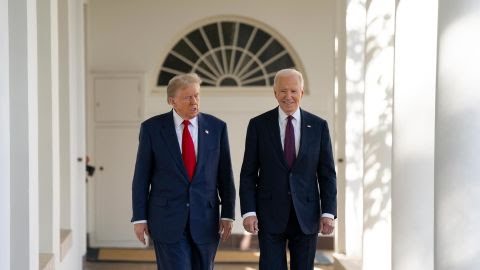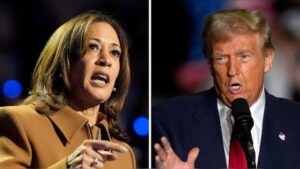
Biden Set to Meet with World Leaders Who May Have Already Moved On to Trump
As President Joe Biden prepares to meet with world leaders this month, political dynamics are casting an unusual shadow over his interactions on the global stage. Despite Biden holding office until at least January 2025, a number of international leaders appear to be looking beyond him—either in anticipation of his successor or simply as a result of waning confidence in his administration’s influence. Some analysts even suggest that, in certain circles, attention has already shifted back to former President Donald Trump, whose potential 2024 candidacy has seized global headlines and sparked renewed interest from foreign powers who found Trump’s style more directly beneficial to their national interests.
The Diplomatic Waiting Game
Diplomats and heads of state across the world are accustomed to adjusting their foreign policies based on American political ebbs and flows. However, Biden’s presidency has seen an unusual level of anticipation for a potential change, as some foreign leaders—particularly those from nations with populist or right-leaning governments—may already be positioning themselves for a Trump or Trump-style figure in the White House. Leaders in Brazil, Israel, Hungary, and parts of Eastern Europe reportedly took a favorable view of Trump’s policies, particularly regarding trade, defense spending, and U.S. commitments abroad. Many aligned with Trump’s nationalist rhetoric and saw him as an ally in promoting “sovereignty-first” policies that downplayed multilateral commitments.
In this atmosphere, Biden’s administration faces a unique challenge in solidifying alliances and pushing its foreign policy agenda. Even as he meets with these leaders, some may see Biden as more of a placeholder than a long-term partner. For Biden’s foreign policy team, this could mean contending with leaders who are more hesitant to commit to U.S.-led initiatives, choosing instead to take a “wait-and-see” approach.
Conflicting Global Views on Biden’s Foreign Policy
Biden’s administration has emphasized a return to the traditional alliances that Trump often treated with a measure of skepticism, particularly with European allies and NATO. Yet this has not completely won over certain leaders. Allies who were accustomed to Trump’s firm, sometimes transactional, stance on issues like NATO funding or bilateral trade may feel ambivalent about Biden’s more multilateral approach, preferring the clear quid-pro-quo stance Trump’s administration often provided.
For instance, Hungarian Prime Minister Viktor Orban publicly admired Trump’s stance on immigration and his defense of national borders, a stance that contrasted sharply with Biden’s emphasis on cooperation with the European Union. Orban’s interactions with Biden have been noticeably less warm, and reports suggest he may be waiting for a “more Trump-like” figure to return to the White House. Similarly, in Israel, Trump’s overt support of the Israeli government under Netanyahu—including the recognition of Jerusalem as the capital and the Abraham Accords—established a degree of trust that Biden’s administration has found challenging to replicate.
A Strategic Play for Influence
Beyond their policy preferences, some leaders may see the strategic benefits of re-aligning with a potential Trump administration. They may feel that Biden’s administration, though dedicated to diplomacy, has not provided the decisiveness or hardline positions that Trump embodied. Russian President Vladimir Putin and Chinese President Xi Jinping, in particular, have adapted their foreign policy to Biden’s more predictable, diplomacy-first approach, but have also leveraged the administration’s efforts to avoid conflict in ways that have sometimes weakened U.S. standing in various regions.
Countries like Saudi Arabia and the UAE, which enjoyed a strong rapport with Trump’s administration, have also been slower to embrace Biden, who has pressured them on human rights and taken a less enthusiastic stance on issues like arms sales. Biden’s recent efforts to repair relationships in the Middle East may not be enough if these leaders suspect a Trump return is on the horizon and are eager to avoid long-term commitments.
Trump’s Shadow Looms Large
Trump’s style, while polarizing, undeniably had an impact. Some leaders valued his unpredictability, believing it forced allies and adversaries alike to pay attention. Trump’s unorthodox methods sometimes yielded results, such as in the Middle East, where the Abraham Accords fostered historic diplomatic ties between Israel and several Arab nations. Biden has largely sustained this agreement, but many international actors still see Trump’s influence in the deal, leading some to wonder if his unorthodox diplomacy could return to reshape their relations with the U.S. in more advantageous ways.
Trump’s influence remains potent in these countries because he represented a break from America’s traditional post-World War II diplomacy. His bilateral, transactional style appealed to nationalist and populist leaders who shared his skepticism of multilateralism, making them hope, perhaps optimistically, for a revival of Trump’s era if he returns to office in 2024.
The Challenge Ahead for Biden
For Biden, these developments pose a serious diplomatic challenge. As he meets with leaders who might already be considering alternative futures, he will need to prove that his administration can deliver clear and impactful results that don’t rely on waiting for another administration. Building long-term alliances and securing international commitments now may be essential, but the prospect of a returning Trump administration—and the unpredictability that comes with it—makes this task all the more difficult.
Whether Biden’s presidency is seen as an interim period or a solidification of U.S. policies that will outlast his term remains to be seen. But as he engages in diplomacy on the global stage, Biden’s struggle may be less with his direct competitors abroad and more with the persistent shadow of his predecessor at home.






